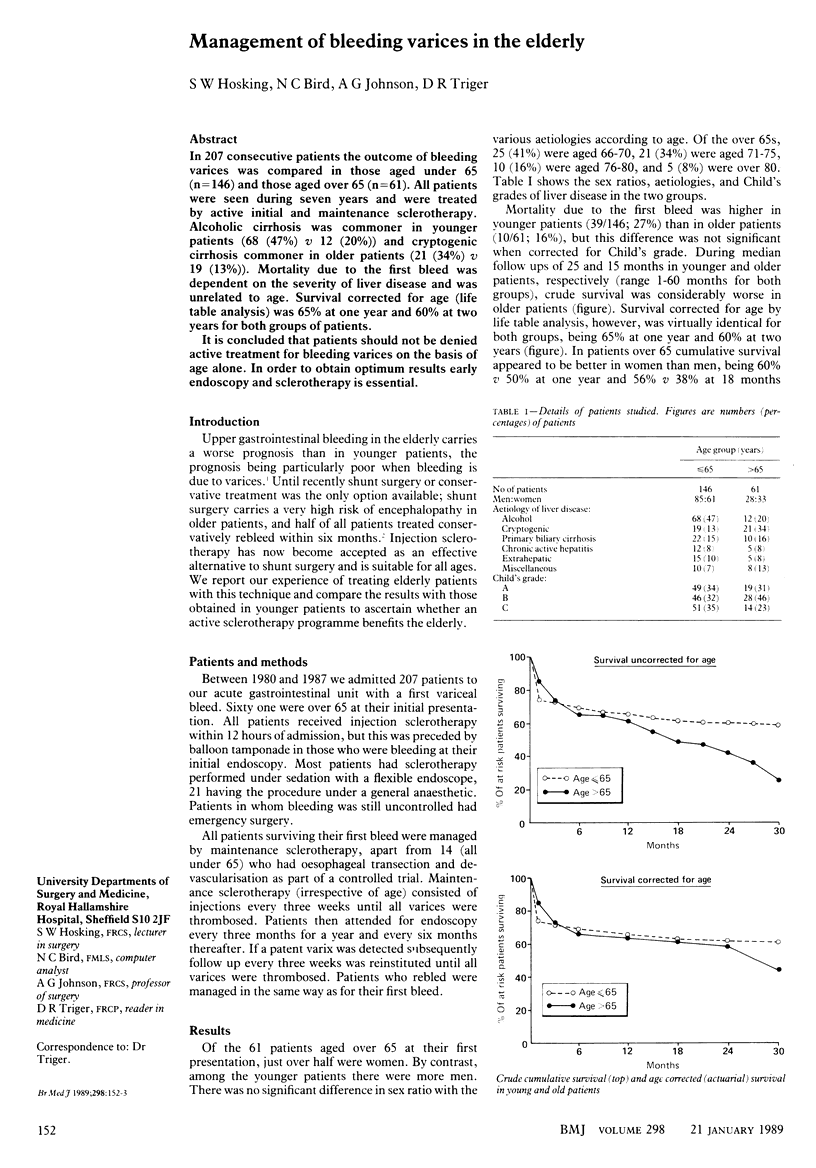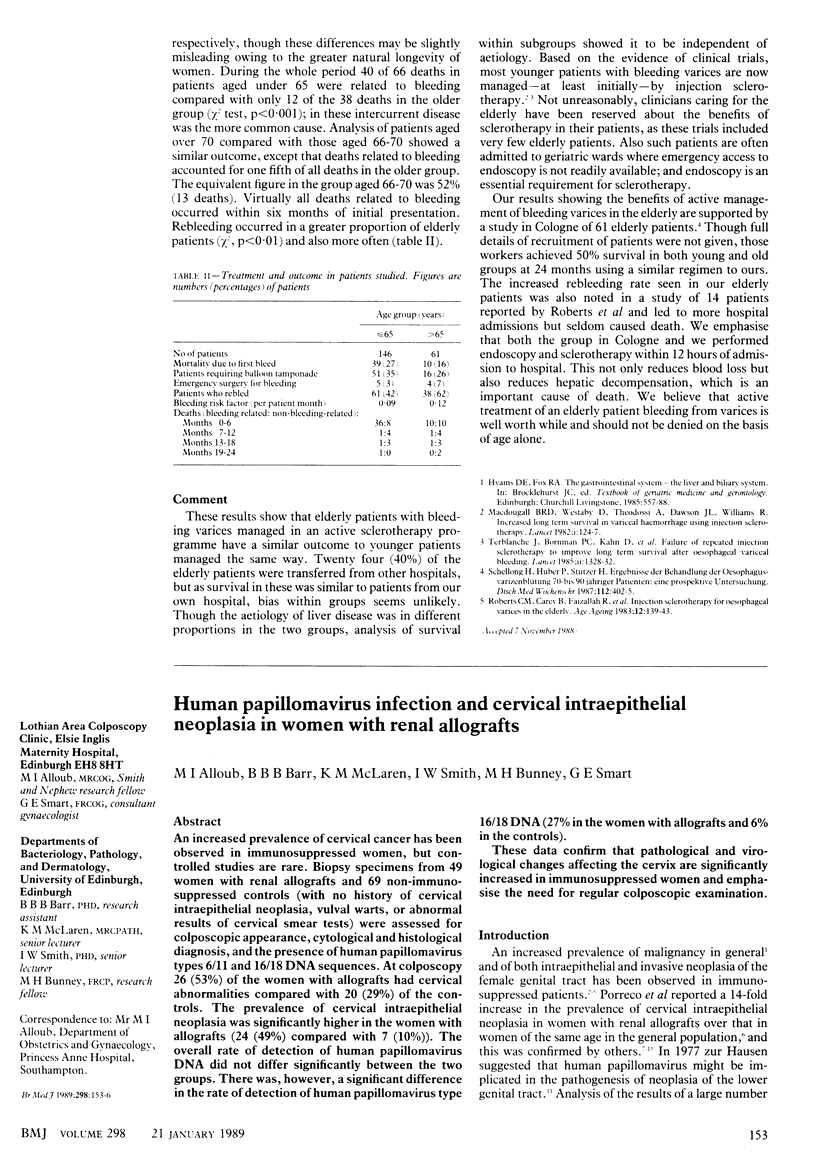Abstract
In 207 consecutive patients the outcome of bleeding varices was compared in those aged under 65 (n = 146) and those aged over 65 (n = 61). All patients were seen during seven years and were treated by active initial and maintenance sclerotherapy. Alcoholic cirrhosis was commoner in younger patients (68 (47%) v 12 (20%] and cryptogenic cirrhosis commoner in older patients (21 (34%) v 19 (13%]. Mortality due to the first bleed was dependent on the severity of liver disease and was unrelated to age. Survival corrected for age (life table analysis) was 65% at one year and 60% at two years for both groups of patients. It is concluded that patients should not be denied active treatment for bleeding varices on the basis of age alone. In order to obtain optimum results early endoscopy and sclerotherapy is essential.
Full text
PDF

Selected References
These references are in PubMed. This may not be the complete list of references from this article.
- Roberts C. M., Carey B., Faizallah R., Walker R. J., Krasner N., Morris A. I., Marcus S. N. Injection sclerotherapy for oesophageal varices in the elderly. Age Ageing. 1983 May;12(2):139–143. doi: 10.1093/ageing/12.2.139. [DOI] [PubMed] [Google Scholar]


